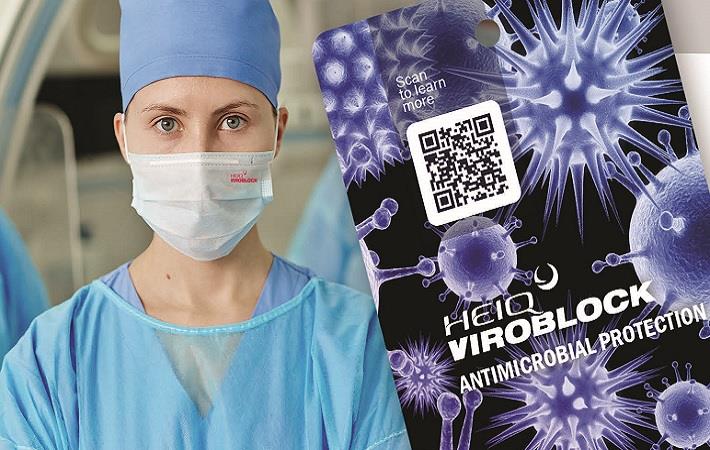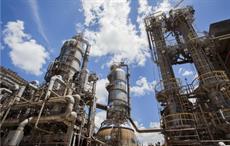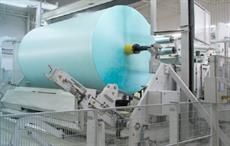Swiss textile innovator HeiQ, has joined hands with Wacker, FHNW, and Alchemie to increase the production of HeiQ Viroblock NPJ103, an antiviral and antibacterial textile treatment. There is high demand for a solution to protect front-line emergency workers with virus-blocking textiles during the COVID-19 pandemic, and that is an enormous challenge.
HeiQ has shown its strength to rapidly finalise and validate an antiviral textile treatment to help with the fight, but said that it would not have been possible to serve the sudden and urgent hike in demand without a few close partners for a seamless supply chain that is intact, even during pandemic times. This includes everything from raw materials to production to application methods.Swiss textile innovator HeiQ, has joined hands with Wacker, FHNW, and Alchemie to increase the production of HeiQ Viroblock NPJ103, an antiviral and antibacterial textile treatment. There is high demand for a solution to protect front-line emergency workers with virus-blocking textiles during the COVID-19 pandemic, and that is an enormous challenge.#
Wacker has been a reliable partner of HeiQ for the past decade for such innovative raw materials as silicone fluid and cyclodextrins. HeiQ Viroblock NPJ03 contains other essential raw materials for which the demand surged. Wacker was able to go out of their way to secure the supply of its cyclodextrins for what was needed, according to a press release by HeiQ.
Once supply of raw materials was secured, the production process of HeiQ Viroblock NPJ03 needed to be developed and optimised quickly for proper scale up. HeiQ’s long-term research partner, FHNW School of Life Sciences (University of Applied Sciences and Arts Northwestern Switzerland), based in the new FHNW Campus Muttenz, Switzerland, has been key to many R&D activities of HeiQ’s innovation, including the latest HeiQ Viroblock NPJ03 technology. They stepped in with their chemical engineering know-how and a special permit to use their new Process Technology Centre (PTC).
On very demanding timelines, the FHNW School of Life Sciences developed quality protocols for initial pilot trials and provided first production batches to serve demands in nearby countries, such as Italy, where material for medical textiles was urgently needed. Previously, The FHNW School of Life Sciences was essential in supporting HeiQ to construct highly efficient manufacturing processes for many of its innovations. Procedures developed at FHNW’s Process Technology Centre are now used as standard protocols across all of HeiQ’s manufacturing locations. The FHNW School of Life Sciences is continuing to support HeiQ with analytical know-how for HeiQ Viroblock NPJ03, and FHNW remains a strong partner for developing future technologies seeking to improve the life of billions of people. By partnering with the PTC at the FHNW School of Life Sciences in Muttenz, in coordination with many other manufacturing locations around the globe, HeiQ was able to ramp up production to satisfy global demand in within one month’s time.
With production secured, application of HeiQ Viroblock NPJ03 had to be suitable for medical personal protective equipment. Cambridge-based Alchemie, who dyes and treats medical textiles with their breakthrough new process technology Novara, has successfully applied HeiQ Viroblock NJP03 together with their Endeavour waterless smart dyeing of the required colour by the UK’s National Health Service. Alchemie’s Novara precision digital coating technology application is uniquely suited to apply HeiQ Viroblock NPJ03 technology with precision to medical textiles. Their digital on-demand process is non-contact and delivers product only where it is needed, on either one or two sides, with precise resolution. This reduces minimum run lengths, enables rapid changeovers and delivers ultimate flexibility in technical textile manufacturing.
Fibre2Fashion News Desk (GK)


